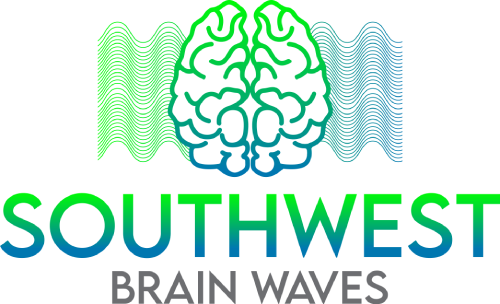Mental health challenges are a growing concern worldwide, with millions of people experiencing conditions like depression, anxiety, obsessive-compulsive disorder (OCD), and more. While traditional treatments such as medication and psychotherapy have long been the standard, they often fall short for many individuals due to side effects, limited effectiveness, or resistance to treatment. In response to these challenges, innovative technologies like Deep Transcranial Magnetic Stimulation (Deep TMS) are breaking barriers in mental health care, offering new hope to patients and redefining what effective treatment looks like.
What is Deep TMS?
Deep TMS is a revolutionary, non-invasive medical treatment that uses advanced technology to address mental health conditions at their root. Unlike traditional TMS, which targets surface-level brain areas, Deep TMS penetrates deeper brain structures to stimulate regions associated with specific disorders. By using magnetic fields to modulate neural activity, Deep TMS helps restore balance in the brain, alleviating symptoms and improving overall mental health.
Overcoming Challenges with Traditional Treatments
- Medication Limitations Many patients experience adverse side effects from psychiatric medications, such as weight gain, fatigue, or emotional blunting. Additionally, some individuals may not respond to medication at all, leaving them with few options.
- Psychotherapy Barriers While therapy can be highly effective, it requires significant time and emotional investment. Some patients may also find it difficult to engage in therapy due to stigma or access issues.
- Resistance to Treatment Treatment-resistant conditions, such as chronic depression or severe OCD, can leave patients feeling hopeless. Traditional methods often fail to address the underlying neurological causes of these disorders, limiting their effectiveness.
Deep TMS addresses these challenges by offering a safe, drug-free, and evidence-based alternative. Its precision and effectiveness make it a game-changer for individuals who have struggled with conventional approaches.
Key Advantages of Deep TMS
- Non-Invasive Procedure Deep TMS is entirely non-invasive, requiring no surgery or anesthesia. Patients can undergo treatment in a comfortable setting without the risks associated with invasive procedures.
- FDA-Approved and Backed by Research Deep TMS is FDA-approved for treating conditions like Major Depressive Disorder (MDD) and OCD. Numerous clinical studies have demonstrated its efficacy, solidifying its position as a reliable treatment option.
- Minimal Side Effects Unlike medications, Deep TMS has minimal side effects. Some patients may experience mild discomfort at the treatment site, but these effects are temporary and typically subside quickly.
- Convenient and Accessible Each Deep TMS session lasts about 20 minutes, allowing patients to incorporate treatment into their daily routines. With no recovery time required, individuals can resume their normal activities immediately after each session.
Conditions Treated by Deep TMS
- Major Depressive Disorder (MDD)
- MDD is one of the most common and debilitating mental health conditions. Deep TMS targets the prefrontal cortex, a brain region associated with mood regulation, to provide significant relief for individuals with depression, even those who have not responded to other treatments.
- Obsessive-Compulsive Disorder (OCD)
- Deep TMS has proven effective in reducing the intrusive thoughts and compulsive behaviors characteristic of OCD. By stimulating the anterior cingulate cortex, the treatment helps patients regain control over their lives.
- Anxiety Disorders
- Anxiety disorders, such as generalized anxiety disorder (GAD) and social anxiety, can severely impact daily functioning. Deep TMS modulates brain activity in regions linked to anxiety, offering a promising solution for long-term relief.
- Addiction and Substance Use Disorders
- Addiction often involves disruptions in the brain’s reward system. Deep TMS helps rewire these neural pathways, supporting recovery and reducing the risk of relapse.
Patient Success Stories
Deep TMS has transformed the lives of countless individuals. Consider the story of Anna, a 29-year-old artist who battled severe anxiety for years. Traditional therapies left her feeling stuck, but after completing a course of Deep TMS sessions, Anna found herself experiencing reduced anxiety levels and a newfound sense of confidence.
Similarly, James, a 42-year-old father, struggled with treatment-resistant depression. Medications provided little relief, but Deep TMS helped lift the cloud of despair, allowing James to reconnect with his family and rebuild his life.
The Science Behind Deep TMS
Deep TMS works by delivering targeted magnetic pulses to specific brain regions. These pulses stimulate or inhibit neural activity, depending on the treatment goals. This precise approach addresses the neurological root causes of mental health disorders, resulting in lasting improvements in symptoms.
What to Expect During Treatment
- Initial Consultation A mental health professional will conduct a comprehensive evaluation to determine if Deep TMS is the right choice for you.
- Treatment Sessions During each session, the patient wears a specialized helmet that delivers magnetic pulses to the brain. The procedure is painless and does not require sedation.
- Treatment Course Most patients undergo treatment five times a week for several weeks. Each session lasts around 20 minutes, making it easy to fit into a busy schedule.
- Post-Treatment Care Patients typically experience gradual improvement in symptoms over the course of treatment. Follow-up care may include periodic maintenance sessions to sustain long-term benefits.
Breaking the Stigma Around Mental Health
Innovations like Deep TMS are not only changing the way we treat mental health disorders but also helping to break the stigma surrounding mental health care. By offering effective, accessible, and science-backed solutions, Deep TMS encourages more individuals to seek the help they need without fear or judgment.
The Future of Mental Health Treatment
As research into Deep TMS continues, its potential applications are expanding. From treating post-traumatic stress disorder (PTSD) to addressing neurological conditions like Alzheimer’s disease, the possibilities are vast. This technology represents a significant leap forward in our understanding and treatment of mental health.
Conclusion
Deep TMS is revolutionizing mental health care by offering a safe, effective, and non-invasive treatment option for individuals struggling with various conditions. At the forefront of this innovation, providers like Southwest Brain Waves are dedicated to delivering transformative care and empowering patients to reclaim their lives.
By breaking barriers in mental health treatment, Deep TMS paves the way for a brighter, healthier future—one session at a time.

